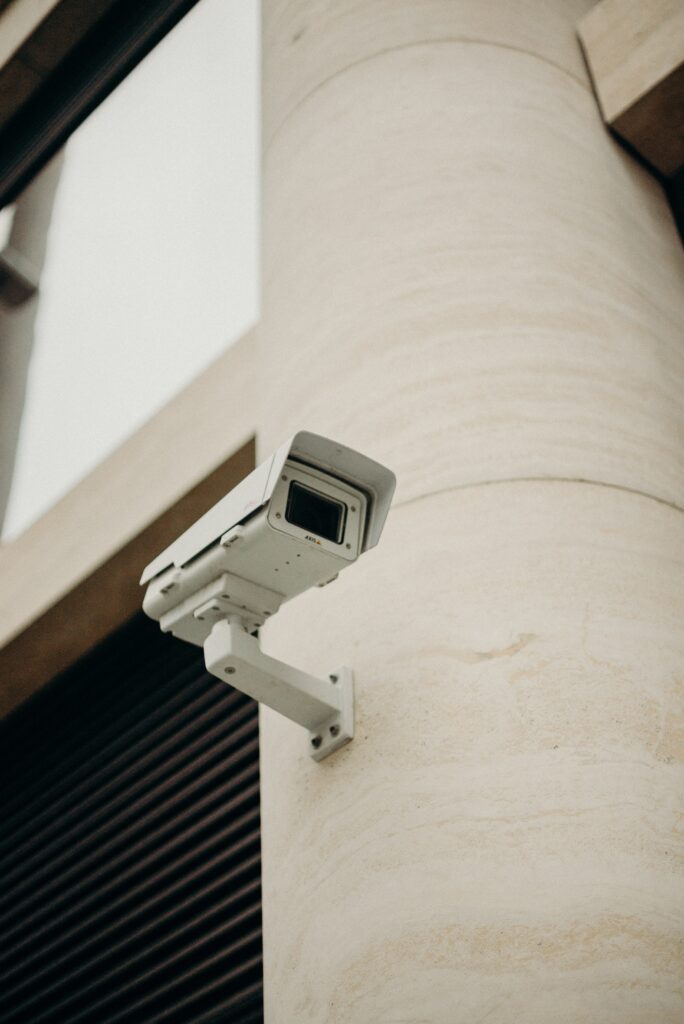To Share is to Show You Care!
In the ever-evolving landscape of technology, blockchain and cryptocurrencies have emerged as transformative forces. In this blog post, we’ll explore how blockchain technology has made a profound impact on my life in 2023 and how you too can harness its power to unlock the secrets of cryptocurrency. Get ready to embark on a journey that could change your financial future forever!
1. The Rise of Blockchain Technology
Blockchain technology, often described as the backbone of cryptocurrencies, has gained significant traction in recent years. Here are some key points to consider.
1.1 Decentralization

Blockchain eliminates the need for intermediaries, allowing for peer-to-peer transactions and cutting out the middleman, reducing costs, and increasing security.
Decentralization is a core principle of blockchain technology. Traditional systems often rely on centralized intermediaries like banks, which oversee and facilitate transactions. In contrast, blockchain operates on a decentralized network of nodes (computers) that collectively validate and record transactions. This eliminates the need for intermediaries, reducing the fees associated with their services. It also enhances security since there’s no single point of failure that hackers can exploit. Blockchain’s decentralization fosters trust among users, as transactions are transparent and verifiable by anyone on the network.
1.2 Transparency
All transactions on the blockchain are recorded in a public ledger, ensuring transparency and trust in the system.
Blockchain’s transparent nature is a key feature that distinguishes it from traditional record-keeping systems. Every transaction made on a blockchain is recorded in a public ledger that is visible to all participants in the network. This ledger, known as the blockchain, is immutable and tamper-proof, meaning that once a transaction is recorded, it cannot be altered or deleted. This transparency ensures that all participants can verify the authenticity of transactions, promoting trust and reducing the risk of fraud.

1.3 Security

Blockchain’s cryptographic methods make it extremely secure and resistant to tampering, providing peace of mind for users.
Blockchain employs advanced cryptographic techniques to secure data and transactions. When a transaction is added to a block and linked to the previous one through cryptography, altering a single block would require changing all subsequent blocks, which is computationally infeasible. This robust security makes blockchain highly resistant to hacking and fraud. Users can trust that once a transaction is confirmed on the blockchain, it is virtually immutable and cannot be tampered with. This security feature is especially crucial in financial and sensitive data applications.
1.4 Smart Contracts
Blockchain can execute self-executing contracts called smart contracts, automating complex processes without the need for intermediaries.
Smart contracts are self-executing agreements with the terms of the contract written directly into code. They automatically execute when predefined conditions are met, without the need for intermediaries or third parties. For example, in the case of an insurance contract, a smart contract could automatically process a claim and pay out to the policyholder when certain conditions, like a flight delay, are confirmed. This automation streamlines processes, reduces the risk of errors, and cuts costs associated with manual intermediation.

1.5 Use Cases Beyond Cryptocurrency

Blockchain technology has applications far beyond cryptocurrency, including supply chain management, healthcare, voting systems, and more.
While blockchain technology originated with Bitcoin, it has evolved to serve a wide range of industries and use cases. For instance, in supply chain management, blockchain can provide transparency and traceability for products from manufacturer to consumer, reducing fraud and ensuring the authenticity of products. In healthcare, it can securely store and share patient records, enhancing data security and interoperability. Blockchain can also be used in voting systems to enhance election transparency and reduce the risk of fraud. These diverse applications showcase the versatility and potential of blockchain technology to revolutionize various sectors beyond finance.
2. Cryptocurrency’s Impact on My Life
In 2023, cryptocurrencies are no longer just a buzzword but a reality that has transformed my life in various ways.

2.1 Financial Freedom

Investing in cryptocurrencies has allowed me to diversify my portfolio and potentially earn substantial returns. Cryptocurrencies offer unique investment opportunities that can yield significant profits. By strategically investing in different digital assets, I’ve been able to diversify my investment portfolio, reducing the risk associated with traditional investment options. The potential for substantial returns in the cryptocurrency market has opened up new avenues for financial growth and independence.
2.2 Global Transactions
With cryptocurrencies, I can send money internationally without the high fees and delays associated with traditional banking systems. Traditional international money transfers often involve high transaction fees, slow processing times, and currency conversion charges. Cryptocurrencies provide a solution to these problems. Using cryptocurrencies for international transactions, I can send money to friends, family, or business partners around the world quickly and with minimal fees. This convenience has made global transactions more accessible and cost-effective.

2.3 Knowledge Empowerment

Understanding blockchain and cryptocurrency has opened up new opportunities for me in the rapidly growing blockchain job market.As blockchain technology becomes increasingly integral to various industries, the demand for skilled professionals in the blockchain sector is soaring. By acquiring knowledge about blockchain and cryptocurrencies, I’ve positioned myself to tap into a wide range of career opportunities. Whether it’s working as a blockchain developer, consultant, or in blockchain-based startups, my expertise in this field has broadened my career horizons.
2.4 Financial Inclusion
Cryptocurrencies have the potential to provide financial services to the unbanked and underbanked populations worldwide. Cryptocurrencies are not bound by traditional banking infrastructure. They can be accessed and used through a smartphone and an internet connection. This accessibility makes cryptocurrencies a powerful tool for promoting financial inclusion, particularly in regions where a significant portion of the population lacks access to traditional banking services. The ability to save, invest, and transact with cryptocurrencies can empower underserved communities economically.

2.5 Security and Control

Cryptocurrencies grant me greater control over my financial assets and enhance security through advanced encryption.
With cryptocurrencies, I have full control over my digital assets, eliminating the need to rely on centralized financial institutions. Private keys and advanced encryption techniques ensure the security of my holdings, reducing the risk of fraud or unauthorized access. This enhanced level of control and security gives me peace of mind, knowing that my financial assets are protected in a decentralized and secure manner.
3. Unlocking Cryptocurrency’s Secrets
Now, let’s dive into the best ways to unlock the secrets of cryptocurrency

3.1 Educate Yourself

Start by gaining a solid understanding of blockchain technology and how different cryptocurrencies work.
Education is the foundation of successful cryptocurrency investments. Blockchain technology underpins all cryptocurrencies, so it’s crucial to understand its core concepts. Learn about blockchain’s decentralized nature, consensus mechanisms (e.g., proof of work or proof of stake), and the process of creating and validating blocks. Explore the specific features of various cryptocurrencies, such as Bitcoin, Ethereum, and altcoins, as they may have distinct use cases and technologies. There are numerous online courses, tutorials, books, and forums dedicated to cryptocurrency education.
3.2 Choose the Right
Wallet: Select a secure cryptocurrency wallet to store your digital assets.
A cryptocurrency wallet is essential for safely storing your digital assets. Wallets come in various forms, including hardware wallets (physical devices for offline storage), software wallets (desktop or mobile applications), and online wallets (web-based platforms). To choose the right wallet, consider factors like security, convenience, and the type of cryptocurrencies you plan to hold. Hardware wallets offer the highest level of security but may be less convenient for everyday transactions. Software and online wallets are more accessible but require careful security measures, such as strong passwords and two-factor authentication.

3.3 Diversify Your Portfolio

Don’t put all your eggs in one basket. Diversify your cryptocurrency holdings to spread risk.
Diversification is a strategy that mitigates risk by spreading investments across different assets. In the cryptocurrency market, diversifying means holding a mix of various cryptocurrencies rather than concentrating your funds in one. Different cryptocurrencies may have different risk profiles, growth potential, and use cases. By diversifying, you can reduce the impact of a poor-performing asset on your overall portfolio. However, it’s essential to research each cryptocurrency thoroughly and understand its unique characteristics before investing.
3.4 Stay Informed

Keep up with the latest news and trends in the cryptocurrency market. Join online forums and communities to stay connected with other enthusiasts.
The cryptocurrency market is highly dynamic and subject to rapid changes. Staying informed about the latest developments, news, and trends is crucial for making informed investment decisions. Follow reputable cryptocurrency news websites, subscribe to industry newsletters, and monitor social media channels where cryptocurrency discussions take place. Engaging with online communities, such as Reddit’s cryptocurrency subreddits, can provide valuable insights and opportunities for learning from experienced traders and enthusiasts.
3.5 Long-Term Perspective
While the cryptocurrency market can be volatile, adopting a long-term investment perspective can help you weather market fluctuations. Cryptocurrency markets are known for their price volatility, with prices often experiencing significant fluctuations in short periods. Instead of reacting to short-term price movements, consider a long-term investment strategy. This approach involves holding onto your cryptocurrency investments over an extended period, potentially years, rather than engaging in frequent trading. Historically, many investors have seen substantial returns by holding onto their assets through market ups and downs. A long-term perspective can reduce the stress associated with day-to-day price volatility and increase the likelihood of realizing significant gains over time.

Conclusion
In 2023, blockchain technology and cryptocurrencies have the potential to change lives. My journey with cryptocurrency has been transformative, providing financial freedom and knowledge empowerment. By following the tips mentioned above, you can embark on your own journey to unlock the secrets of cryptocurrency and experience the life-changing impact it can have. Don’t miss out on this incredible opportunity – start your journey today!
Frequently Asked Questions
Q1: How do I start learning cryptocurrency?
A: To start learning cryptocurrency, begin with the basics. Research what cryptocurrencies are, how blockchain technology works, and the different types of cryptocurrencies available. Explore online courses, books, and reputable websites to deepen your knowledge.
Q2: What should a beginner learn in crypto?
A: Beginners in crypto should start by understanding the fundamentals of blockchain technology, how to store and manage cryptocurrencies using wallets, and the concept of public and private keys. Additionally, learn about popular cryptocurrencies like Bitcoin and Ethereum.
Q3: How do you educate people about cryptocurrency?
A: Education about cryptocurrency can be achieved through online resources, attending seminars or webinars, joining cryptocurrency communities, and following reliable news sources. Sharing your knowledge and experiences with others is also a valuable way to educate people about crypto.
Q4: Can you invest $100 in crypto?
A: Yes, you can invest $100 in cryptocurrency. Many cryptocurrencies are divisible, allowing you to purchase a fraction of a coin. Research and choose a cryptocurrency exchange or platform that supports small investments.
Q5: How much should a beginner invest in cryptocurrency?
A: The amount a beginner should invest in cryptocurrency varies based on individual financial circumstances. It’s advisable to start with an amount you can afford to lose, as the crypto market can be volatile. Diversify your investments to manage risk.
Q6: What is the easiest crypto for beginners?
A: Bitcoin is often considered the easiest cryptocurrency for beginners due to its widespread adoption, simple user interfaces, and availability on numerous exchanges and wallet platforms.
Q7: Is crypto hard to understand?
A: Cryptocurrency can be initially challenging to understand, but with dedication and learning, it becomes more accessible. Start with the basics and gradually build your knowledge.
Q8: What do I need to know before starting crypto?
A: Before starting with crypto, understand the risks associated with volatility, research different cryptocurrencies, learn about security practices, and choose a reputable exchange or wallet provider.
Q9: What skills do you need to learn for cryptocurrency?
A: Skills for cryptocurrency include understanding blockchain technology, risk management, basic trading strategies, security practices (such as securing private keys), and staying informed about market trends.
Q10: Who pays to learn cryptocurrency?
A: Learning cryptocurrency often requires personal investment in terms of time and resources. Some educational resources are free, while others may require payment for courses or materials.
Q11: How much would 1 Bitcoin be worth in 5 years?
A: Predicting the exact value of Bitcoin in the future is challenging. Bitcoin’s price is influenced by various factors, including market demand, adoption, and macroeconomic trends.
Q12: How much will I get if I put $1 dollar in Bitcoin?
A: The amount you get from investing $1 in Bitcoin depends on the current price of Bitcoin. Bitcoin prices fluctuate, so your investment’s value will change accordingly.
Q13: What will $100 of Bitcoin be worth in 10 years?
A: The future value of $100 of Bitcoin in 10 years is uncertain and depends on Bitcoin’s performance in the market over that period.
Q14: How much was $1000 dollars of Bitcoin 5 years ago?
A: The value of $1000 of Bitcoin five years ago would depend on the specific date of purchase, as Bitcoin’s price has experienced significant fluctuations during that time.
Q15: Can you be a millionaire from crypto?
A: It’s possible to become a millionaire through crypto investments, but it comes with risks. Many factors, including the timing of investments and market conditions, influence the outcome.
Q16: Should I buy Bitcoin or Ethereum?
A: The choice between Bitcoin and Ethereum depends on your investment goals. Bitcoin is often seen as a store of value, while Ethereum has a broader range of applications, including smart contracts and decentralized apps. Research both and consider your objectives before deciding.
The Informed Minds
I'm Vijay Kumar, a consultant with 20+ years of experience specializing in Home, Lifestyle, and Technology. From DIY and Home Improvement to Interior Design and Personal Finance, I've worked with diverse clients, offering tailored solutions to their needs. Through this blog, I share my expertise, providing valuable insights and practical advice for free. Together, let's make our homes better and embrace the latest in lifestyle and technology for a brighter future.

